Avirup Das
ARCADE: Adaptive Robot Control with Online Changepoint-Aware Bayesian Dynamics Learning
Dec 16, 2025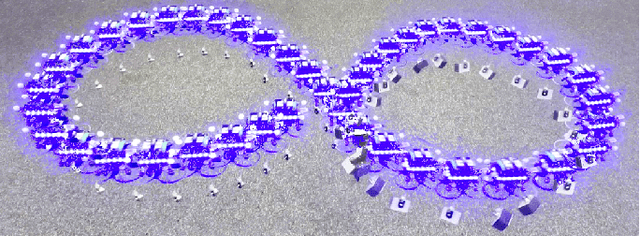
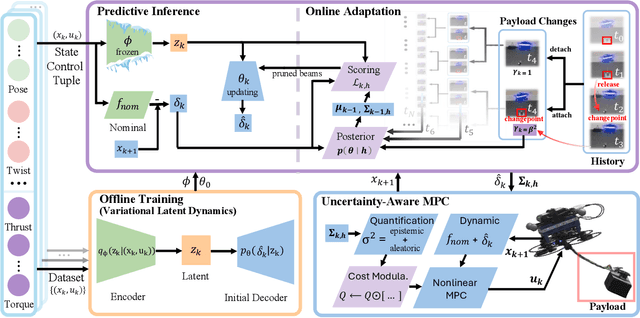
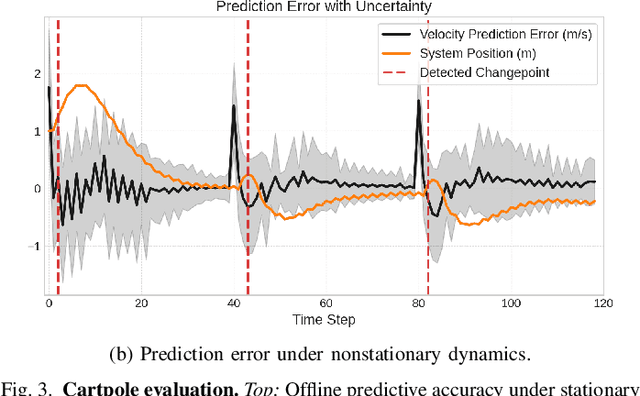
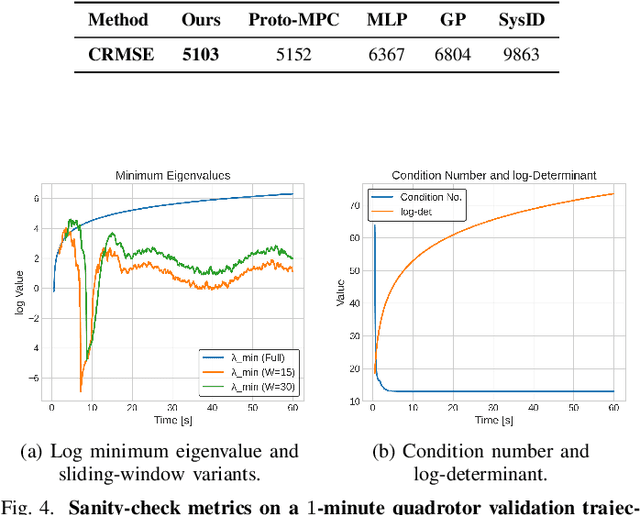
Abstract:Real-world robots must operate under evolving dynamics caused by changing operating conditions, external disturbances, and unmodeled effects. These may appear as gradual drifts, transient fluctuations, or abrupt shifts, demanding real-time adaptation that is robust to short-term variation yet responsive to lasting change. We propose a framework for modeling the nonlinear dynamics of robotic systems that can be updated in real time from streaming data. The method decouples representation learning from online adaptation, using latent representations learned offline to support online closed-form Bayesian updates. To handle evolving conditions, we introduce a changepoint-aware mechanism with a latent variable inferred from data likelihoods that indicates continuity or shift. When continuity is likely, evidence accumulates to refine predictions; when a shift is detected, past information is tempered to enable rapid re-learning. This maintains calibrated uncertainty and supports probabilistic reasoning about transient, gradual, or structural change. We prove that the adaptive regret of the framework grows only logarithmically in time and linearly with the number of shifts, competitive with an oracle that knows timings of shift. We validate on cartpole simulations and real quadrotor flights with swinging payloads and mid-flight drops, showing improved predictive accuracy, faster recovery, and more accurate closed-loop tracking than relevant baselines.
Do the Right Thing, Just Debias! Multi-Category Bias Mitigation Using LLMs
Sep 24, 2024



Abstract:This paper tackles the challenge of building robust and generalizable bias mitigation models for language. Recognizing the limitations of existing datasets, we introduce ANUBIS, a novel dataset with 1507 carefully curated sentence pairs encompassing nine social bias categories. We evaluate state-of-the-art models like T5, utilizing Supervised Fine-Tuning (SFT), Reinforcement Learning (PPO, DPO), and In-Context Learning (ICL) for effective bias mitigation. Our analysis focuses on multi-class social bias reduction, cross-dataset generalizability, and environmental impact of the trained models. ANUBIS and our findings offer valuable resources for building more equitable AI systems and contribute to the development of responsible and unbiased technologies with broad societal impact.
DroneDiffusion: Robust Quadrotor Dynamics Learning with Diffusion Models
Sep 17, 2024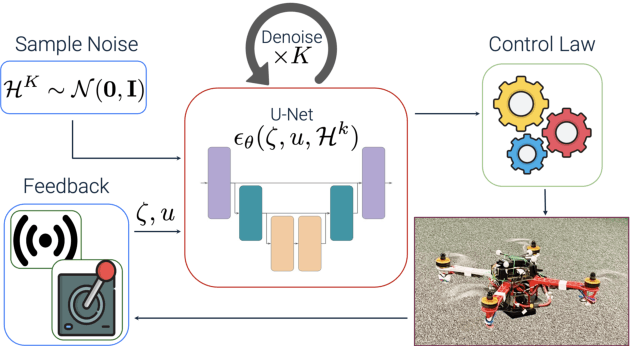
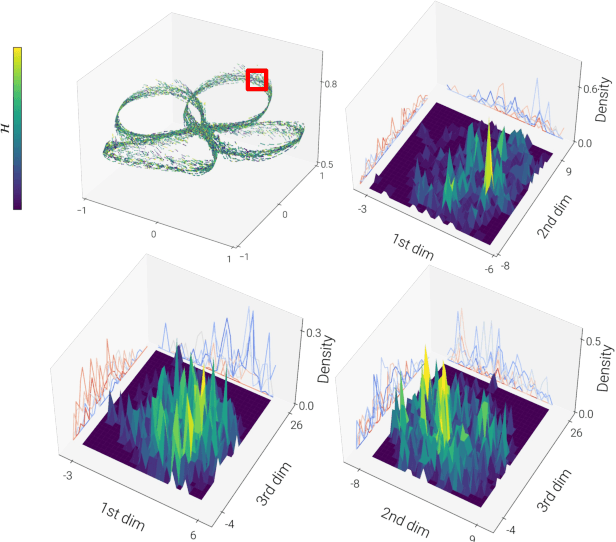
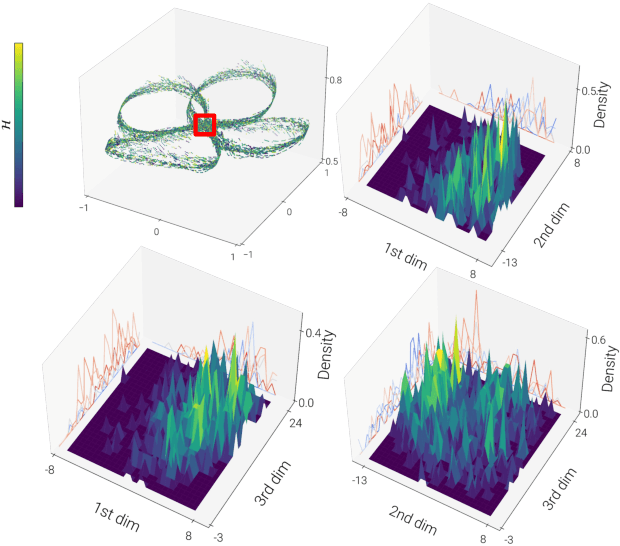
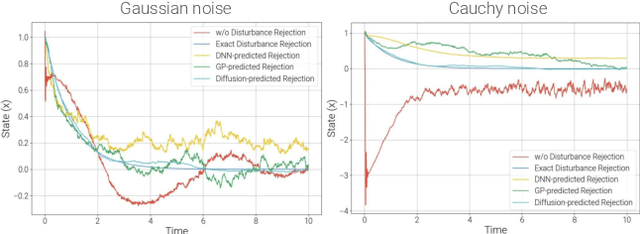
Abstract:An inherent fragility of quadrotor systems stems from model inaccuracies and external disturbances. These factors hinder performance and compromise the stability of the system, making precise control challenging. Existing model-based approaches either make deterministic assumptions, utilize Gaussian-based representations of uncertainty, or rely on nominal models, all of which often fall short in capturing the complex, multimodal nature of real-world dynamics. This work introduces DroneDiffusion, a novel framework that leverages conditional diffusion models to learn quadrotor dynamics, formulated as a sequence generation task. DroneDiffusion achieves superior generalization to unseen, complex scenarios by capturing the temporal nature of uncertainties and mitigating error propagation. We integrate the learned dynamics with an adaptive controller for trajectory tracking with stability guarantees. Extensive experiments in both simulation and real-world flights demonstrate the robustness of the framework across a range of scenarios, including unfamiliar flight paths and varying payloads, velocities, and wind disturbances.
Effective Generation of Feasible Solutions for Integer Programming via Guided Diffusion
Jun 18, 2024

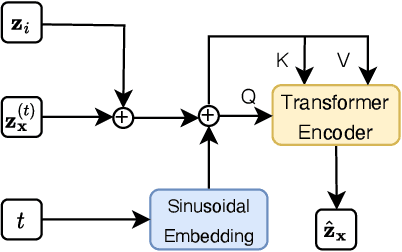

Abstract:Feasible solutions are crucial for Integer Programming (IP) since they can substantially speed up the solving process. In many applications, similar IP instances often exhibit similar structures and shared solution distributions, which can be potentially modeled by deep learning methods. Unfortunately, existing deep-learning-based algorithms, such as Neural Diving and Predict-and-search framework, are limited to generating only partial feasible solutions, and they must rely on solvers like SCIP and Gurobi to complete the solutions for a given IP problem. In this paper, we propose a novel framework that generates complete feasible solutions end-to-end. Our framework leverages contrastive learning to characterize the relationship between IP instances and solutions, and learns latent embeddings for both IP instances and their solutions. Further, the framework employs diffusion models to learn the distribution of solution embeddings conditioned on IP representations, with a dedicated guided sampling strategy that accounts for both constraints and objectives. We empirically evaluate our framework on four typical datasets of IP problems, and show that it effectively generates complete feasible solutions with a high probability (> 89.7 \%) without the reliance of Solvers and the quality of solutions is comparable to the best heuristic solutions from Gurobi. Furthermore, by integrating our method's sampled partial solutions with the CompleteSol heuristic from SCIP, the resulting feasible solutions outperform those from state-of-the-art methods across all datasets, exhibiting a 3.7 to 33.7\% improvement in the gap to optimal values, and maintaining a feasible ratio of over 99.7\% for all datasets.
 Add to Chrome
Add to Chrome Add to Firefox
Add to Firefox Add to Edge
Add to Edge